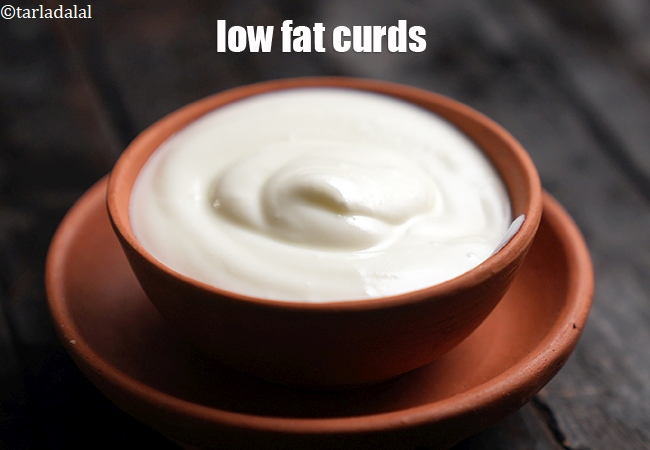One Rice And Soya Paratha (60 grams) gives 148 calories. Out of which carbohydrates comprise 76 calories, proteins account for 30 calories and remaining calories come from fat which is 45 calories. One Rice And Soya Paratha provides about 7.4 percent of the total daily calorie requirement of a standard adult diet of 2,000 calories.
Rice And Soya Paratha recipe makes 6 parathas of 60 grams each.
148 calories for 1 paratha of Rice And Soya Paratha ( Protein Rich Recipe ), Cholesterol 0 mg, Carbohydrates 18.9g, Protein 7.6g, Fat 4.9g. Find how much fibre, iron, calcium, zinc, magnesium, phosphorus, sodium, potassium, folic acid is present in Rice And Soya Paratha ( Protein Rich Recipe ).
See rice and soya paratha recipe | protein rich soya paratha | leftover rice and soy paratha | with 20 amazing images.
Rice and soya paratha is a unique and nutritious variation of the traditional Indian paratha, where cooked rice and soya granules are combined with spices and herbs to create a flavorful and wholesome dish. This dish is not only delicious but also a great way to use up leftover rice and incorporate protein-rich soya granules into your diet.
To make rice and soya paratha, cooked rice, whole wheat flour and soya granules are mixed together with spices like cumin, turmeric, coriander, and garam masala, ginger green chili paste, and fresh coriander leaves. This mixture is then stuffed into the paratha dough, rolled out, and cooked on a griddle until golden brown and crispy.
Rice and soya paratha is a great source of protein and fiber, making it a nutritious meal option for vegetarians and vegans. The combination of rice and soya provides a good balance of essential amino acids, making this dish a complete and satisfying meal choice.
Whether enjoyed for breakfast, lunch, or dinner, rice and soya paratha is sure to be a hit with your family and friends. Serve it hot with a side of yogurt, pickle, or chutney for a delicious and wholesome meal experience. Try this innovative and nutritious paratha recipe for a tasty twist on the classic stuffed paratha.
Pro tips for rice and soya paratha. 1. In a large bowl put 1/2 cup cooked rice (chawal) or leftover rice. Cooked rice adds a soft and slightly fluffy texture to the paratha dough. This complements the chewiness of the wheat flour dough and creates a more pleasant eating experience. The rice also helps to bind the dough ingredients together, making it easier to roll out. 2. Add 2 tsp ginger-green chilli paste. Ginger adds a warming and slightly sweet flavor to the paratha. Green chilies contribute a touch of heat that can help to balance the richness of the soya and rice stuffing.
Is Rice and Soya Paratha healthy?
Yes for some and no for others with health issues.
Let's understand the ingredients.
What's good.
benefits of soya granules, soya chunks.
- Soy granules are rich in vitamins, minerals, isoflavones and lecithin, nutrients proven to help lower cholesterol, prevent cancer and loss of bone mass.
- Soy is strongly recommended for diabetics, expectant mothers, growing children, cardiac patients, weight-watchers and the aged.
- A 100 percent vegetarian high quality protein source that does wonders for young and old.
- Especially great for growing children, as it provides critical vitamins, minerals, fibre and protein.
- Eating more high-fiber foods like fruits, vegetables, whole grains and soy nuggets helps to lose weight.
- Soy granules are one of the best non-fish sources of essential omega-3 fatty acids, which may help reduce the risk of coronary heart disease.
- Soy protein may provide positive results for people with high blood pressure.
- Soy protein is beneficial to women in post-menopausal years.
- Soy is low in fat and sodium, and may help reduce the risk of heart disease.
Whole Wheat flour (gehun ka atta) : Whole wheat flour is excellent for diabetics as they will not shoot up your blood sugar levels as they are a low GI food. Whole wheat flour is rich in Phosphorus which is a major mineral which works closely with calcium to build our bones. Vitamin B9 helps your body to produce and maintain new cells, especially increase red blood cells. See detailed 11 benefits of whole wheat flour and why it's good for you.
What's the problem?
Rice : Here are the pros for rice. Rice is a great source of complex carbohydrates, which is an important source of energy for our body. Moreover it is gluten free. Rice is low in fibre and therefore a good option for people suffering from diarrhoea. But rice is a good source of protein and B vitamins.
What's not good with rice? Foods like rice that are high in Glycemic index are not suitable for weight loss, heart patients, diabetics as they affect the blood sugar control levels. However if rice is combined with high protein or high fibre foods, the glycemic load can be balanced. Thus its combo is a better choice as we have done in the recipe of panch dhan khichdi and toovar dal khichdi. See details of is white rice and parboiled rice good for you?
Can diabetics, heart patients and overweight individuals have rice and soya Paratha?
No. Foods like rice that are high in Glycemic index are not suitable for weight loss, heart patients, diabetics as they affect the blood sugar control levels.
What is a healthy accompaniment to this paratha?
We suggest you pair it with homemade curds using cows milk or low fat curds or a low fat cucumber raita.

Low fat curds recipe | healthy low fat curds | low fat dahi | Indian low fat curds |